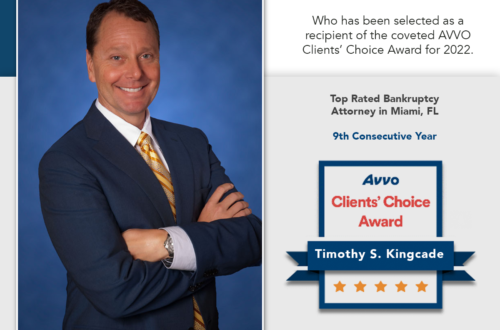Many debt collectors are known to employ pushy methods and persistent measures to collect money from debtors. The issue is rising to new heights as debt buyers pursue consumers, without any regard for the terms of the debt or even the identity of the debtor. One of the country’s largest debt collection agencies, Portfolio Recovery Associates, LLC (PRA LLC) pursued a Kansas City woman, over a mistaken $1,000 credit card bill. The trial jury ruled against the company for violating the Fair Debt Collection Practices Act (FDCPA) because of their malicious pursuit of the woman. The result was an enormous award of $82,990,000 in punitive damages.
While the result of this case was not typical, the act of debt buyers relentlessly pursuing debtors is quite common. If you have outstanding debt, debt buyers like PRA LLC will make it their business to buy your unpaid debts. They normally purchase these debts for pennies on the dollar, from financial institutions that have already charged them off. These debt collectors will then use aggressive tactics to get payments from you. They often act quickly, threatening action against you unless you agree to a settlement or payment plan. Many times, debt collectors will even overlook expiration dates and even go after the wrong individual, as seen in the Kansas City case.
When faced with persistent debt collectors, it is easy to want to evade them or ignore the attempts, but this is exactly what they want you to do. After an adequate number of attempts, the debt collector can serve you a summons. Simply ignoring this will not stop the suit from proceeding and eventually a judge can declare a default judgment against you.
If a debt collector contacts you, the following tips will help you throughout the process.
• Take Action from Initial Contact. If you are contacted by a debt collector, make sure you respond within the proper time frame. The response time limit is generally 20-30 calendar days, but it may vary by state. You may need to seek trusted legal representation.
• Demand Written Notice. The FDCPA requires debt collectors to provide you with written notice about the debt. It should include the name of the creditor and the amount of the debt owed. Do not engage them any further without this notice.
• Verify the Debt. Is the debt really yours? Has it been forgiven or discharged? If it is not yours, the burden is on the debt collector as to whether they want to sue you.
If you are in a financial crisis and are considering filing bankruptcy, contact an experienced Miami bankruptcy attorney who can advise you of all of your options. As an experienced CPA as well as a proven bankruptcy lawyer, Timothy Kingcade knows how to help clients take full advantage of the bankruptcy laws to protect their assets and get successful results. Since 1996 Kingcade & Garcia, P.A. has been helping people from all walks of life build a better tomorrow. Our attorneys’ help thousands of people every year take advantage of their rights under bankruptcy protection to restart, rebuild and recover. The day you hire our firm, we will contact your creditors to stop the harassment. You can also find useful consumer information on the Kingcade & Garcia website at www.miamibankruptcy.com.
Source: http://www.foxbusiness.com/personal-finance/2015/06/12/woman-wins-83-million-from-debt-collector/


